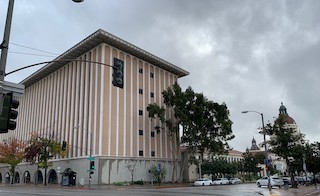What’re the Most Common Direct Consequences of a Conviction?
The U.S. Supreme Court has noted that “a guilty plea is a grave and solemn act to be accepted only with care and discernment . . . .” . Brady v. United States (1970) 397 U.S. 742, 748; see also Boykin v. Alabama, 395 U.S. 238, 242 (1969) (“[A] plea of guilty is more than an admission of conduct; it is a conviction.”).
Summary in 55 Words or Less: The most common direct consequence of a conviction are restrictions on one’s freedom, either through being remanded into custody for jail or prison, or being placed on probation with certain requirements, as well as fees and fines that must be paid. There also may be immigration consequences, professional licensing consequences and registration obligations.
It consequently seems rather fundamental that a defendant, before pleading guilty or no contest, should know what he is truly getting himself into by waiving his constitutional rights to a trial and remaining silent. Thus, when someone pleads guilty or no contest, he consents to a judgment of conviction without trial that will in most cases remain with him for the rest of his life. This consent “not only must be voluntary but must be [a] knowing, intelligent act done with sufficient awareness of the relevant circumstances and likely consequences.” Brady, supra, at 748.
California has recognized this critical phase of a criminal case by requiring that a judge advise defendant of certain direct consequences of his or her plea before accepting it.
 Pasadena Courthouse
Pasadena Courthouse
California recognizes the following ten direct consequences that a judge must state on the record to defendant:
- Mandatory revocation of one’s driving privileges in a DUI case. Corley v. DMV (1990) 222 Cal.App.3d 72, 76, 271 Cal. Rptr. 406.
- Fines, penalties and assessments, as well as any applicable drug testing / laboratory fees.
- Immigration consequences. If defendant is not a U.S. citizen, a conviction may result in deportation, exclusion from admission to the United States and/or denial of naturalization. Penal Code § 1016.5. The judge must warn non-citizens defendants of these consequences. People v. Superior Court (Zamudio) (2000) 23 Cal.4th 183, 96 Cal. Rptr. 3d 463.
- Maximum parole period that defendant may have to serve following completion of any prison term imposed. In re Moser (1993) 6 Cal.4th 342, 357, 24 Cal.Rtpr. 2d 723; People v. Avila (1994) 24 Cal.App.4th 1455, 30 Cal.Rptr.2d 138.
- The potential maximum sentence in the case. In re Birch (1973) 19 Cal.3d 314, 110 Cal. Rptr. 212. This is relevant in case defendant is placed on probation and violates probation.
- Absolute or potential probation ineligibility. People v. Caban (1983) 148 Cal.App.3d 706, 196 Cal. Rptr. 177.
- Arson Offender registration. Penal Code § 457.1.
- Narcotics Offender registration. Health & Safety Code § 11590.
- Sex Offender registration. Penal Code §§ 290 – 290.023; In re Birch, supra.
- Restitution fine. People v. Walker (1991) 54 Cal.3d 1013, 1022, People v. Crandell (2007) 40 Cal.4th 1301, 1310, 57 Cal. Rptr. 3d 349.
As one can see, direct consequences generally include the potential jail or prison term, fines, and any other criminal punishment that a trial judge may impose after conviction. Almost everything else is deemed “collateral.”
 Immigration Court Downtown LA
Immigration Court Downtown LA
Under the “collateral-consequences rule,” a defendant has no constitutional right to be made aware of collateral consequences before he pleads guilty. These may include, but are not limited to:
- If convicted of a felony or certain misdemeanors, the prohibition against owning or buying a firearm until the right is restored (expungement does not restore the right and reclassification under Penal Code § 17(b) may not);
- If convicted of a felony, suspension of one’s right to vote while in prison or on parole;
- If convicted of a felony, suspension of one’s right to serve on a jury;
- If convicted of a felony, being ineligible to serve in the U.S. armed forces without a waiver;
- If convicted of certain felonies, disqualification from holding certain public offices;
- Professional licensing consequences;
- Having one’s information on the Megan’s List website if one is a registered sex offender;
- Travel restrictions while one is on probation; and
- Residency restrictions for sex offenders regarding proximity to schools, playgrounds, etc.
Consequently, he has no right to withdraw his guilty plea if he was unaware of its collateral consequences.
Contact us.  Pasadena Courthouse
Pasadena Courthouse Immigration Court Downtown LA
Immigration Court Downtown LA